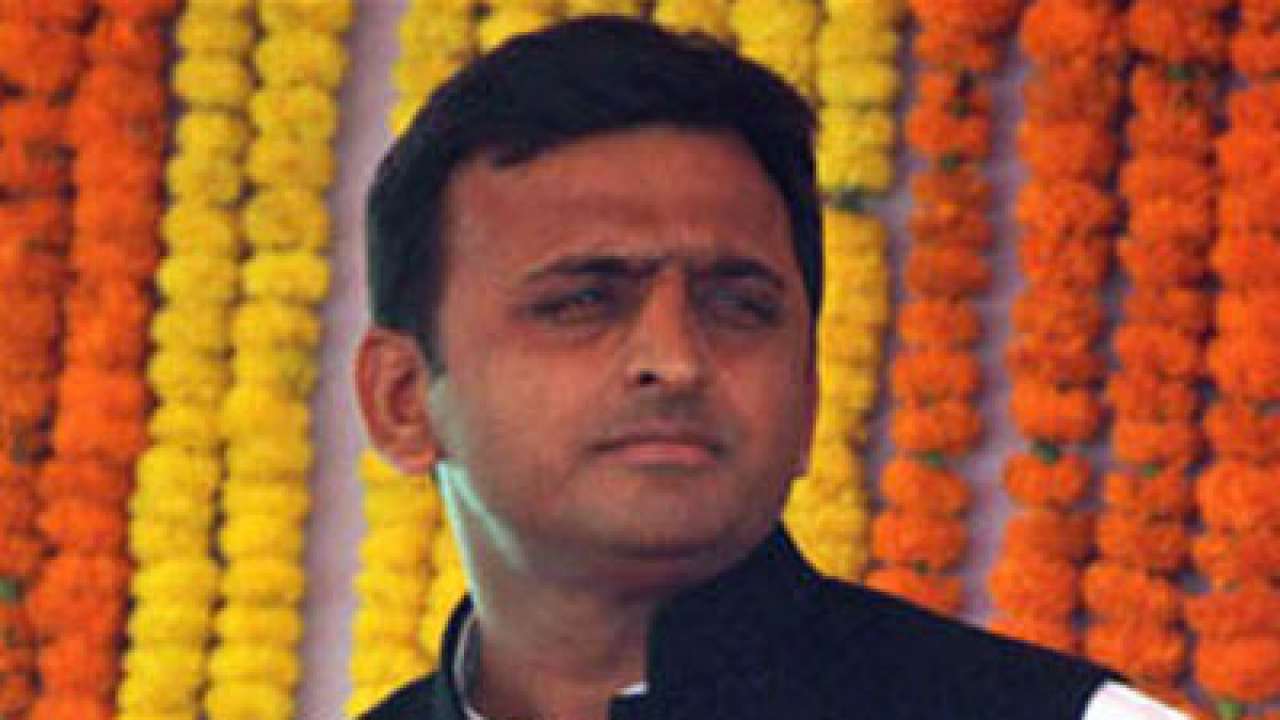
- Select a language for the TTS:
- UK English Female
- UK English Male
- US English Female
- US English Male
- Australian Female
- Australian Male
- Language selected: (auto detect) - EN
Play all audios:
Just over two weeks have passed since the ouster of Sudan President Omar al-Bashir, ending his nearly 30-year rule. Following his removal on April 11, a Transitional Military Council assumed
control of the government and called for a two-year transitional period. The protest movement that forced Bashir from power after four months of sustained demonstrations rejected this move
and protests continued, as the demonstrators made clear they would not accept prolonged military rule or a hijacking of their revolution. Much has changed since then, but perhaps the most
important development was the African Union’s refusal to recognize the legitimacy of the Council and its plan for a two-year transitional period before general elections. Immediately
following Bashir’s removal, the African Union (AU) offered a somewhat tepid initial response, with AU Commission Chair Moussa Faki issuing a statement saying only that a “military takeover
is not the appropriate response to the challenges facing Sudan and the aspirations of its people.” However, on April 15, the AU seemed to find its resolve, as the AU Peace and Security
Council (PSC) issued a communiqué that “strongly condemns and totally rejects” the Council’s seizure of power and its two-year transition. Instead, the AU PSC demanded the Council hand over
rule to a civilian-led transitional government within 15 days. Failure to do so would trigger Article 7(g) of the AU Protocol, thus automatically suspending Sudan from the AU. On April 24,
the AU again changed tack, extending the deadline to give the Council an additional three months to complete the handover to civilian rule. In its statement announcing this extension, the AU
stressed the need for the Council and the protest leaders to act in good faith and work together to establish a civilian-led government. Amidst these developments, large-scale protests
continue as demonstrators attempted to complete a Million Strong March on Thursday to keep pressure on the Council. Although three months is perhaps too generous of an extension for the
Council, it could allow for a more cohesive government to take control when the period ends, provided the demonstrators remain united. It also allows the Council to demonstrate its sincerity
for supporting democratic rule. Of course, three months is also plenty of time for things to fall apart. The AU, the Intergovernmental Authority on Development (IGAD) (East Africa’s
regional trade bloc), and regional states that are invested in a reformed and stable Sudan must not allow the Council to backslide on this deadline or for a result less than what the
Sudanese people demand: a more democratic and inclusive Sudan led by a civilian government. MIXED MESSAGES April 21, in particular, saw considerable tension, as protest leaders stated they
would no longer recognize the authority of the Transitional Military Council and instead would escalate demonstrations. As a result, hundreds of thousands of protesters again gathered in
front of the military headquarters to demand civilian rule and vowed to remain until the Council hands over power. This escalation was not the plan, as protesters had anticipated an
announcement from the Sudan Professionals Association (SPA) providing a list of names for a civilian-led transitional council. However, the SPA made no such announcement. Instead, the
broader Forces of Freedom and Change, of which the SPA is a member, stated that it would no longer recognize the Council, calling it an extension of the previous regime. This development
seemed to foreclose the possibility of protesters cooperating with the Council to form a transitional government. At the time, the Council insisted that it was committed to turning over
authority to a civilian government, but a spokesperson for the SPA rejected this statement, saying the Council “is still not serious about handing power over to civilians.” Three days later,
on April 24, this changed again, as protest leaders agreed to restart negotiations with the Council. The protesters and the Council agreed to form a committee to resolve disagreements, and
three members of the Council linked to Bashir resigned after this meeting. Finally, on April 27, protest leaders and the Council seemed to strike a tentative agreement to form a joint
council to govern the country, although details are still emerging as to the final composition of this new body, The key sticking point seems to be whether there would be a greater
representation of military or civilian figures on the joint council. THE REVOLUTION STRIKES BACK The week’s contentious dealings between the protest leaders and the Transitional Military
Council were in large part due to concerns over the Council’s actions and intentions following Bashir’s ouster. Thus, while April 11 was a momentous day for the Sudanese people, celebration
quickly turned to anger as the Council announced the suspension of the Constitution and the two-year period of military rule before elections. The Council also called for a curfew, effective
immediately, and a three-month state of emergency. The protesters rejected these terms, equating them to Bashir-ism without Bashir. Remarkably, rather than bowing to what looked to be a
crushing setback, protesters continued to demonstrate and refused to observe the curfew or leave their encamped position in front of the military headquarters in the capital Khartoum. Less
than 24 hours later, it was the Council—not the protesters—that succumbed, as Council Head and Minister of Defense Lt. Gen. Awad Mohammed Ibn Ouf resigned. The protesters rejected Ibn Ouf
for several reasons, but foremost was his close association with the Bashir regime. He also served as Head of Military Intelligence and Security during the Darfur conflict and was sanctioned
by the U.S. Treasury in 2007 for abuses under his command. The protesters scored another victory as Salah Gosh resigned as Head of National Intelligence and Security Services (NISS) the
following day. Within Sudan, perhaps no entity is as loathed—and feared—as NISS. Linked to numerous killings, torture, and wide-ranging repression, for many Sudanese, NISS symbolized the
worst aspects of the regime’s shift to a security state. And while the resignation of Ibn Ouf and Gosh is noteworthy, it is important to remember that much of Sudanese power politics occurs
outside of formal channels. Thus, both men retain considerable influence despite having moved offstage. Lt. Gen. Abdel Fattah al-Burhan replaced Ibn Auf as Council Head. Al-Burhan took a
more conciliatory tone with the protesters and has fewer links to the Bashir regime. Nonetheless, he is one of the most senior officials in the Sudanese military and oversaw Sudan’s military
contribution to the Saudi-led coalition fighting in Yemen. Mohamed Hamdan Dagalo, better known as “Hemeti,” also remains on the 10-person Council. Hemeti led the Rapid Support Forces, a
reconstituted and government-supported version of the Janjaweed militias responsible for some of the worst atrocities during the Darfur conflict. And despite his notorious reputation, Hemeti
still harbors political clout, as demonstrated by his meeting with the top U.K. and U.S. diplomats in Khartoum after Bashir’s ouster. Moreover, some Western diplomats believe that Hemeti,
while saying the right things now, is simply waiting for his chance to try to assume power. Now serving as the Deputy Head of the Council, he is well-positioned to do so. This is not to say
Sudan’s military is necessarily planning to maintain military rule indefinitely. And, as Sudan historian Willow Berridge notes, it is a mistake to think of the Sudanese military as a
monolithic entity. While high-ranking military and security officials hope to preserve something of a status quo, both for fear of recrimination for past crimes and to continue enjoying a
disproportionate share of government funds, most younger military officers—who do not share this fear, nor enjoy this patronage—are altogether less tied to the existing social order. THE
PROTESTERS AND THE COUNCIL: A MATTER OF TRUST The tension between the protesters and the Council is effectively a matter of trust, or lack thereof. The Council has struggled to convince the
Sudanese people that it represents a meaningful break from the past 30 years of misrule, even as al-Burhan has repeatedly pledged to cut ties with the previous regime. He has also announced
plans to restructure state institutions, including the Anti-Corruption Commission, and released political protesters detained during the demonstrations or convicted under the Emergency
Courts that Bashir’s government put forward in February in a final attempt to derail the protesters. Further, on April 14, a Council spokesperson said Bashir’s National Congress Party (NCP)
will not participate in the transitional government and stressed that several NCP leaders have been arrested on charges of corruption. Finally, it has gone after officials with strong ties
to Bashir, such as Mohamed Atta, the former Head of NISS. Atta was serving as Sudan’s top diplomat to the United States before being recalled to Khartoum. While the Council struggles to
convince the demonstrators that it is serious about meaningful reform, the protest leaders face their own struggles, including achieving consensus on transitional arrangements and
articulating a plan to move the country forward. On April 18, the Forces of Freedom and Change proposed that a small government of technocrats, including a parliament composed of at least 40
percent women, should lead the country during a four-year transition period. But even supporters of the demonstrations, such as the U.S., questioned aspects of this plan, particularly its
duration. THE INTERNATIONAL COMMUNITY PICKS SIDES The government that ultimately emerges from Sudan’s transition will, in part, depend on how influential states and international actors
react to political developments within Khartoum. Thus far, support for the protest movement or the Council has broken along predictable lines. The United States has supported the protest
movement. On April 18, a State Department spokesperson urged the Council to allow for a peaceful transition, stating, “The will of the Sudanese people is clear: it is time to move toward a
transitional government that is inclusive and respectful of human rights and the rule of law.” This follows a joint statement by the Troika countries of the U.S., U.K., and Norway, which
have long led international diplomatic efforts on Sudan and South Sudan. The statement called for the transitional government to hand over authority to civilian rule. The United Nations and
European Union have also supported the transition to civilian rule. UN Secretary-General Antonio Guterres called for a transition that would meet “democratic aspirations” in Sudan and then
appointed Nicholas Haysom to support the AU’s mediation efforts. Haysom is well-versed in Sudanese issues, having previously served as U.N. special envoy for Sudan and South Sudan. Likewise,
Federica Mogherini, the European Commission High Representative for Foreign Affairs and Security Policy called for a swift handover to civilian rule, stressing that the EU would not
recognize the Council. GULF AND AFRICAN SUPPORT TO THE MILITARY COUNCIL In contrast, Saudi Arabia issued a statement on April 13 in support of the Council, while also pledging to provide
humanitarian assistance, including fuel, wheat, and medicine. Two days later, the Council stated that Sudan’s Armed Forces would remain in the Saudi-led coalition fighting in Yemen.
Currently, Sudan contributes at least 3,000 troops and several fighter jets to the coalition, which has been widely criticized for alleged violations of international humanitarian law. The
United Arab Emirates (UAE), also a member of the coalition fighting in Yemen, has pledged its support of the Council. On April 21, Saudi Arabia and the UAE announced a $3 billion aid package
for Sudan. Intended as an economic lifeline for the Council, this package consists of a $500 million deposit in Sudan’s Central Bank to stabilize the economy and $2.5 billion in food,
medicine, and fuel. Strategically, this political and economic support aims to keep Sudan on the Saudi-UAE side of their own dispute within the Gulf Cooperation Council, where they are
pitted against Qatar. Until recently, Sudan was a closer ally to Qatar, though Bashir was quick to play sides off one another for his benefit, as demonstrated by his balancing of political
support and military contributions to the Saudi-UAE military campaign in Yemen, while also allowing Qatar and Turkey to begin a massive renovation project on the old port of Suakin in the
Red Sea, a move that infuriated Saudi Arabia, the UAE, and Egypt. Regionally, South Sudan President Salva Kiir pledged his government’s support of the Council and urged African leaders to
give the Council more time to complete the handover to civilian rule. The Ugandan government went even further, as its Minister for Foreign Affairs said that Uganda would consider granting
Bashir asylum. The Ugandan government purportedly made this offer in recognition of Bashir’s positive contribution to the South Sudan peace negotiations, although at least part of this
decision stems from Ugandan President Yoweri Museveni’s disdain for the International Criminal Court (ICC), which he has previously called “a bunch of useless people who should not be taken
seriously” and which issued arrest warrants for Bashir in 2009 and 2010. Further, after decades of animosity, Museveni must feel shortchanged that Bashir’s removal came so soon after a
normalization of relations between the two countries. Finally, Russia and Chad also issued statements of support for the Council, while Egypt too has showed its support, despite chairing the
AU PSC. THE LOOMING SHADOW OF BASHIR The fate of former President Bashir has loomed over the transition. Speculation over what will happen to him has only increased since April 17, when
authorities moved him to Kobar Prison, a notorious maximum security facility where Bashir sent thousands of political prisoners during his rule. A few days later, security officials
uncovered more than $130 million in cash at Bashir’s home, which furthered anger at Bashir, as nearly half of the Sudanese people live under the International Monetary Fund’s global poverty
line. And while there is widespread support among the protesters to try Bashir for his alleged crimes, there is much less agreement on which authorities should conduct the trial and where.
Human Rights Watch, Amnesty International, and other human rights organizations insist that Sudanese authorities must surrender Bashir to the ICC. This is a nonstarter for the Council, which
has repeated that it will never extradite Bashir, although it has said it will allow for his prosecution. Still, the composition of the Council continues to change, lessening the certainty
of this pronouncement. Likewise, a civilian government could take a very different approach. One interesting possibility would be for the U.S. to make Bashir’s surrender to the ICC part of a
deal for diplomatic recognition of the new government and perhaps even removal of Sudan from the U.S. State Sponsor of Terrorism (SST) List. Given the Trump administration’s animosity
towards the ICC, this is very unlikely. But, if U.S. officials really wanted to see Bashir in The Hague, dangling removal from the SST list might be the strongest incentive. As Patryk Labuda
and others have noted, the domestic prosecution of Bashir is much more likely, but there are other options. For example, Ottilia Maunganidze of the Institute for Security Studies reminds us
that the 2009 African Union High Level Panel on Darfur recommended establishing a hybrid court to address the regime’s crimes during the conflict. While a worthwhile consideration for
Darfur, demands for accountability include a vast number of violent acts that occurred outside of this conflict. Still, this is an option, as is a specialized regional court in the model
that eventually tried and convicted former Chadian dictator Hissène Habré. Another alternative could be a truth, justice, and reconciliation commission. Any of these options may be more
appealing to the Sudanese people than an ICC trial that inevitably would drag on for years and raise the specter of a similarly unsatisfying conclusion to that of the Milosevic trial at the
International Tribunal for the Former Yugoslavia given Bashir’s age and health. (Milosevic died of natural causes in custody at The Hague, seven years after he was indicted, five years after
he had finally been arrested in Serbia, and just weeks before the likely conclusion of his trial.) WHAT COMES NEXT? Even assuming a civilian government takes power by the AU’s deadline, the
structural problems that Sudan faces will remain. And no problem is more pressing than the economy, which has been devastated by years of endemic corruption and political patronage.
Accordingly, economic diversification and a move away from oil dependence will be an important first step for the next government to take. In the meantime, as discouraging as the three-month
extension from the AU might seem, it may be a blessing. Elections that followed popular revolutions in Egypt and Libya arguably contributed to weakening prospects for sustainable democracy,
rather than strengthening it. And while the protesters must remain united, the extension also provides more time for civilian leaders to build consensus and plan for the country’s future.
Less optimistically, the extension also raises the danger of regime entrenchment, as hardliners from the previous regime may try to exploit the uncertainty of the moment and attempt to
regain power. To prevent this unwelcome outcome, which would almost certainly entail significant violence, the AU and IGAD—as well as influential states—must stand with the Sudanese people
and accept nothing less than a full transition to civilian rule by the end of the current extension. _IMAGE: A SUDANESE SOLDIER FLASHES THE VICTORY SIGN AT PROTESTERS DURING A SIT-IN OUTSIDE
THE ARMY HEADQUARTERS IN THE CAPITAL KHARTOUM ON APRIL 28, 2019. SUDANESE PROTESTERS WELCOMED A BREAKTHROUGH IN TALKS WITH ARMY RULERS WHO AGREED TO FORM A JOINT CIVILIAN-MILITARY COUNCIL,
THOUGH DETAILS WERE PENDING. (PHOTO BY OZAN KOSE/AFP/GETTY IMAGES)_ FEATURED IMAGE: A Sudanese soldier flashes the victory sign at protesters during a sit-in outside the army headquarters in
the capital Khartoum on April 28, 2019. - Sudanese protesters welcomed today a breakthrough in talks with army rulers who agreed to form a joint civilian-military council, paving the way
for the civilian administration demanded by demonstrators. (Photo by OZAN KOSE / AFP) (Photo credit should read OZAN KOSE/AFP/Getty Images)






